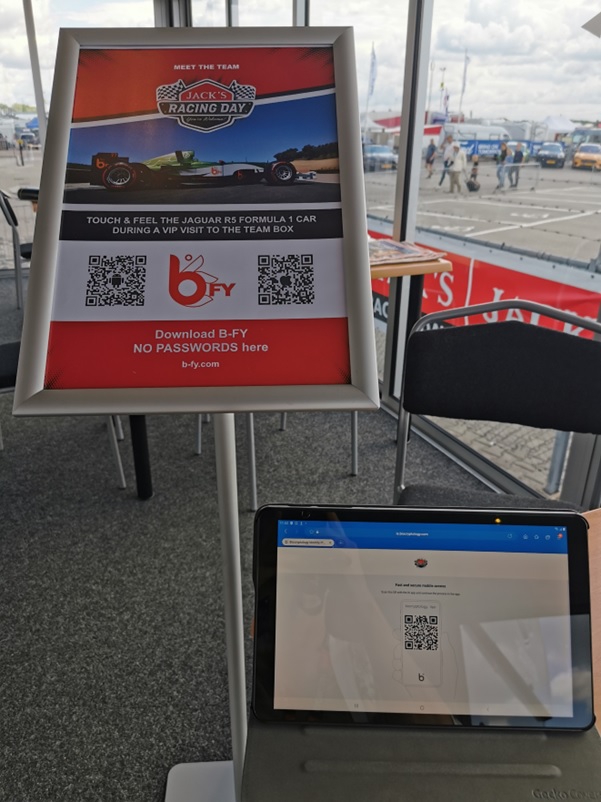
This website uses cookies so that we can provide you with the best user experience possible. Cookie information is stored in your browser and performs functions such as recognising you when you return to our website and helping our team to understand which sections of the website you find most interesting and useful.
On Saturday 6th August, B-FY had an area at the entrance of the VIP zone, inviting volunteers to download the mobile application that would allow them to use the secure B-FY technology to enter and enjoy the VIP zone. In exchange for taking part in the test, volunteers were rewarded with access to the private team box on Sunday, for a meet & greet with the team. The volunteers had a great user experience, as well as a fantastic opportunity to come as close to a car racing team a person can ever get.
All volunteers downloaded the event app on their mobile phones and followed the indications given by the B-FY team. Volunteers could witness how easy, fast and precise the VIP access can get, wishing for wider roll-out of the technology in this kinds of events. The test was extremely successful.


Thanks so much to the team of Lee van Dam Productions for allowing us to do this, helping us in the logistics and for their enthusiasm. Thanks so much to Klaas Zwart and his team for hosting the visitors, answering all their questions so patiently and for supporting the team un winning both the races on Saturday and Sunday. Finally, thanks to our volunteers who took the time to participate, we hope you had a great experience with us!

B-FY is the most modern identification technology, that identifies people through their mobile device in the fastest, easiest and most secure way. No usernames, no passwords, just you and your mobile phone. Your biometric data remains in your mobile phone so data privacy risks and fraud become a thing of the past.
Visit us at www.b-fy.com for more information.
B-FY is a new access protocol that universally identifies customers, eliminates fraud and protects data privacy. Its identification as a Service (IDaaS) solution uses the biometric recognition capabilities that mobile devices provide today to reliably identify people. The identification protocol used offers the maximum guarantees of protection and privacy of the user’s data with the aim of eliminating identity theft fraud, by unequivocally identifying people. Its CEO, Miguel Abreu, has more than 21 years of experience in the technology field and in the last 14 years has held leadership positions in fast-growing software manufacturers. More information at www.b-fy.com

Laura Gambell